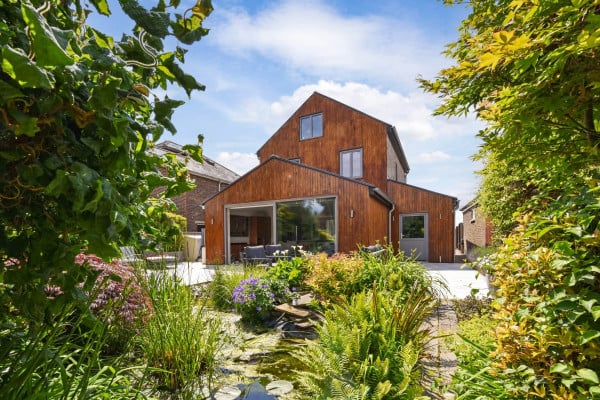How much is my house worth?
_(930_x_427_px).jpg)
The never ending question about how much your house is worth is always at the tip of every house seller's lips. The real answer is that it is worth as much as a person is willing to pay for it but that doesn't hold much grace here as you cannot enter that in a field asking for your sale price. It is very true that some houses are easier to value than others. For example if you live in a house on a terraced street you will quite often be able to find sold prices of other houses on your street which will pretty much be the exact same price your house is worth; loft extensions excepted. However if you live in a street with a variety of house sizes and designs or in a remote area it can be much trickier and the asking price can be much more influenced by buyer sentiment.
Use an online valuation tool?
There are many, many online valuation tools that typically take sold prices of other properties with your postal code vicinity and give you an estimate of a valuation of your price. If you already have a price in mind you can use these tools to validate your thoughts but you can also use these tools as a guide price of what you think you can achieve. We use a very powerful valuation tool here which is absolutely great to get you going.
So how does an estate agent come up with your house price?
Anybody who thinks that an estate agent leaves your house after having a look around to input your criteria in a top secret house price calculator algorithm is well mistaken. In part they will make your valuation based on local knowledge but largely it is based on a combination of what you want to get (it is no coincidence that they ask you this question) and what they think they can get for you. In reality it is not unusual for them to go back to the office and put the question to the other members of staff to get a price by consensus.
- An Estate Agent will always ask you how much you think it is worth. The Estate Agent in the first instance will want to get your sale (only after your 'getting' your sale will he worry about 'doing' the sale) so there will generally be a discussion about this price which either comes to the conclusion that you are 'bang on' in your estimate, you have unrealistic expectations or you can get more than you think which is obviously every house sellers dream. Different Estate Agents tend to have different practices and you will find some will typically over value and some will typically under value .
- The size of your house is clearly a factor. So 3 bedrooms will typically be worth more than a 2 bed. Likewise all your rooms should have clear uses as this makes it easier for a buyer to understand what the house is actually worth to them.
- Some measurements will be made to provide a square footage or metreage. This is a method often used in the US and is not always representative of our intricate property market but can still be useful as a guide. Particularly given you can often walk a few hundred yards and house prices will deviate drastically.
- Make sure you tell the estate agent what work has been done on the property. A new boiler will have an impact as will rewiring. It is also very important to mention any work that has improved the layout or increased the size. This will help the Estate Agent when he goes away and looks up previous sold prices in your street to account for an increase in size of your property.
- There is no pretending that local knowledge isn't the main factor in determining a house price. Local knowledge can often give insights in to the type of houses residents are looking for and particularly in what streets. So this can never be dismissed as a useful factor.
What about previous sold prices?
There are a number of ways you can find previous house prices in your local area and we are assuming if you are computer literate enough to be looking at Emoov to sell your house then you can easily check a couple of websites to see what is being sold around you. We recommend the following and they are all as simple as putting in a post code:
- Rightmove sold prices. Rightmove is a great source of historic data as it is the most used property website in the current UK market.
- Zoopla. Zoopla is very close behind Rightmove as a source of property sales and has a slightly different feel about it to Rightmove.
- Land Registry. Typically the online property websites take a feed from the land registry monthly so they may not quite be as up to date as this site but the difference is this site does not include photos and other details of properties which can help indicate why certain prices were met.
What can I do to help my house price?
There are some very basic things you can do to make it easier to sell your house that are simply about thinking about what a buyer wants and trying to home in on the psyche of the buyer. When meeting somebody new there is no denying the impact of first impressions. The same applies to your house. Make sure the front of your house is clean; sweep up leaves, mow the lawn and pull up the weeds. These touches aren't just to turn drive-bys in to viewings they also help a propspective buyer fall in love with your property. The same simple, and obvious, things apply inside. Make sure the house is tidy and clean. Give the prospective buyer a clear picture in their head about what each room is for and don't be afraid to do some dressing up. The impact of freshly brewed coffee, fresh bread and flowers are more than about just impact they impress on the buyer a lifestyle that they can aspire to.
So how can I actually find out how much my house is worth?
It is actually very easy to get a valuation for your house. In fact you do not actually need to have a fixed price in mind before starting to upload your property on the Griffin website as you can always come back to it and review before you put it live. We suggest you do a combination of the following. Don't forget you will be saving '000s of pounds in doing so
- firstly get a free online valuation here which will give you an initial guide. Then have a look at historic sale prices on Zoopla, Rightmove and the Land Registry to see the prices that houses in your area have sold at.
- Secondly contact some local estate agents to get some local knowledge about house prices. Both Rightmove and Zoopla have the facility to ask local estate agents for valuations which can be typically 'no obligation' valuations with no commitment to sell your house with the Estate Agent themselves. If you were getting a price for work on your house you would typically get quotes from 3 different builders so we do not see this as taking any sort of liberty.
You can use these tools here at Rightmove and Zoopla.
Once you have a price you would like to put your property on sale at you can then complete your listing on the Emoov website and start to advertise it on a whole host of property websites. You will be able to start marketing your property within 30 minutes and the sale of your house is then fully under your control. We do not leave you there though as we understand there can be moments when you are unsure as to the next steps so we are always at the end of the phone to support you in your quest to get the best price for your house while saving the most money in fees.

Selling This Spring? Here’s How to Get Ahead of the Competition
26.02.2026Spring is one of the busiest times to sell, but more listings mean more competition. Here’s how to price, photograph and position your home to stand out and secure early offers.
.png)
Sell or Let Your Property Yourself – Why More UK Homeowners Are Choosing to Go Online
03.02.2026Selling or letting a property no longer has to mean handing over thousands of pounds to a traditional estate agent.
.png)
Before You List: Watch Emoov’s Top Tips for Home Sellers
20.01.2026Thinking about selling your home? Before you list, it’s worth taking a few minutes to watch this short video from emoov, where we break down the key steps every seller should take before going live online.
.png)
A Step-by-Step Video Guide: Uploading a Property
23.12.2025This guide explains how to upload your property listing on Emoov, with a step-by-step video and expert tips on photography, presentation, floorplans, descriptions and video tours to help you get your home live quickly.

Selling Your Home? Here’s What You’ll Need to Have Ready
28.11.2025Thinking of selling your home yourself? Before you dive into viewings and negotiations, make sure your paperwork is in order.

Has Your Home Increased in Value? What 2025 Property Prices Mean for Sellers
30.10.2025Homeowners across the UK are asking the same question: has my property increased in value over the last few years? With new figures showing that over a million homes have jumped by more than 50% in value since 2020, it might be time to take a closer look. Whether you're considering selling, remortgaging, or just curious, here's how to understand your home's worth in today's market.









